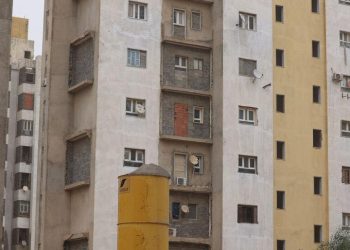By Ajnadin Mustafa.

Tripoli, 19 September, 2015.
On top of crumbling power supplies, health services throughout Libya are on the verge of collapse . . .[restrict]and officials are warning of an humanitarian disaster.
Shortages of drugs, medical supplies, functioning equipment and the qualified staff to work with them are now crippling the availability of even the most basic treatment.
The Tripoli Medical Centre warned today that a lack of ambulance crews, nurses, doctors and technicians is leading to an “humanitarian disaster”. The hospital is reportedly claiming that its now has only four nurses for each of its three daily shifts.
Treatments such as chemotherapy have stopped for lack of properly-trained personnel. For the last five months vaccinations for babies have been virtually unobtainable. A concerned parent who contacted the Libya Herald said that his child was vaccinated when it was born at the start of this year, but none of the scheduled further vaccinations has been available.
“My concern,” he said “is that if young children do not get the early age vaccinations, they are bound to be at severe risk, if not now, in the future and the whole nation will suffer. My own child, thank God is still well. However last week when I went to Fashloum for his next inoculation, I was told there was still none available. They said to come back in a few days”.
The situation is no better in Benghazi, where today Benghazi Medical Centre was trying to reverse a reported mass-resignation by a large proportion of the remaining foreign staff,
Chairman of the BMC’s executive council, Nasrallah Al-Saadi, was said by the LANA new agency to have begged the foreign staff to reconsider. It is unclear how many overseas personnel are involved. Two of the key problems have been security and non-payment of salaries. The latter exacerbated by the continuing weakness of the Libyan dinar and the failure of the banking system to make foreign exchange transfers, in the case of one bank, allegedly for nine months.
Saadi said that he had asked the Minister of Health Reda Al-Menshawi to approve a block payment of 40 percent of outstanding salaries. He also said that the BMC was to provide foreign staff with new housing in safe areas of the city.
It is unclear if Saadi’s offer persuaded all or any of the foreign medical staff to abandon their plans to quit. The BMC and the Jalaa hospital, the only two Benghazi hospitals still open, have been struggling to maintain services, in large part because a lack of trained personnel.
There has been a steady departure of overseas doctors, nurses and technicians during the last 18 months. Until now the Benghazi hospitals have managed to keep certain units going, such as the dialysis clinic, thanks to supplies sent from Tripoli. However, it now seems that as the capital’s health services struggle to maintain its own services, that help may no longer be available. [/restrict]









